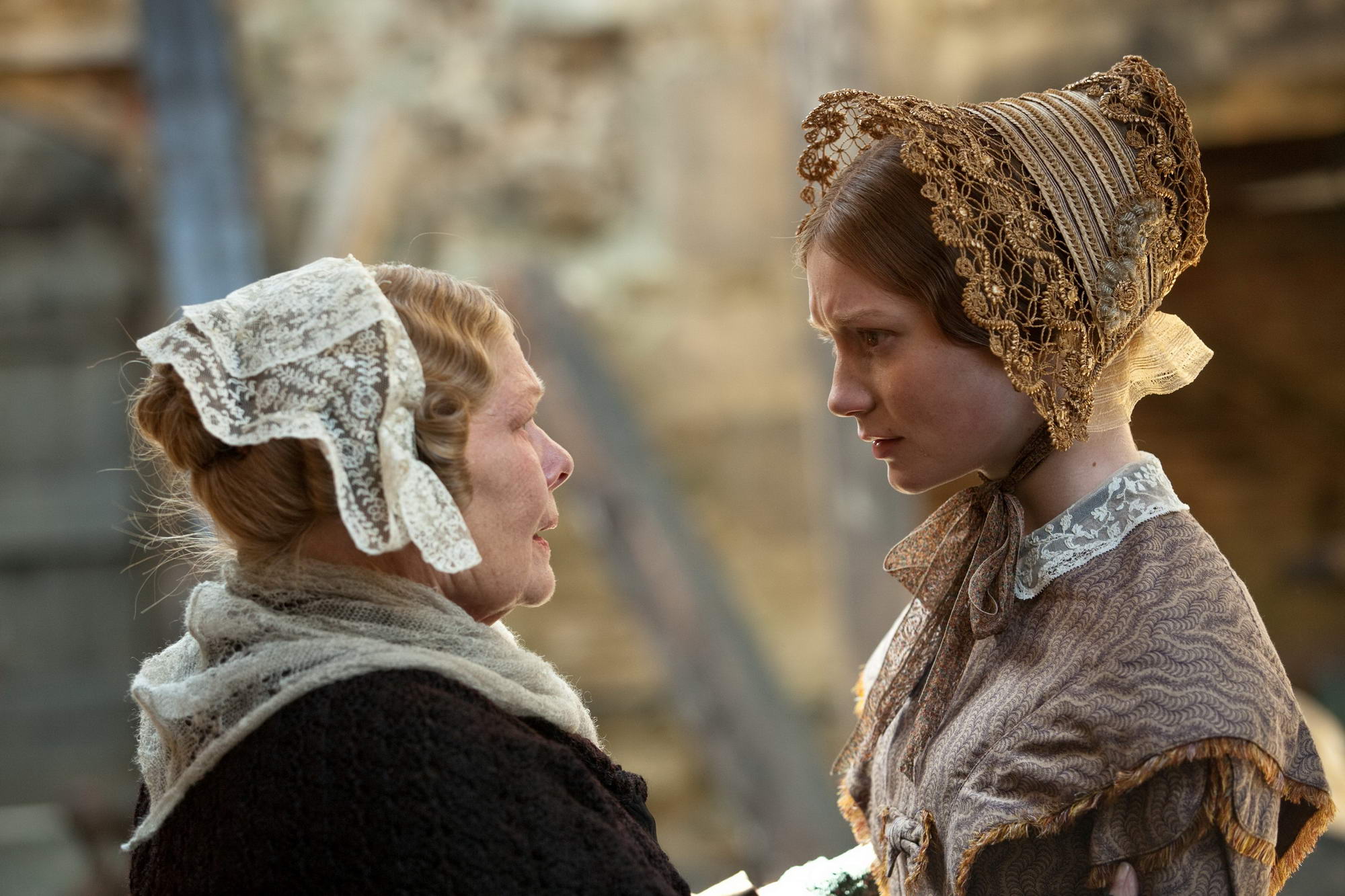The Best of Period Dramas
There was a world not much different than ours, of balls and ellaborate gowns, of horse carriages and aristocratic mannerisms and men, aloof and chivalric. A world not fast paced like today’s; where lush, green lawns were frequently visited and picnics organized to everyone’s merry. This is the world of period dramas, the alternate world some of us wish to escape to in the heat of today’s rapid, developed chaos.
However, the grass is not always greener on the other side. What may seem as a delightful society on the surface, would be grappeling with its own social and individual issues underneath and such a society finds reflection in some of the classic works of literature we cherish today. I give to you a list of five of my favorite period dramas which essentially being love stories, deal with issues of grave importance, which question the position of women and norms of society. These movies are adaptions from the centuries bygone and have marvelously captured the essence of the time they are set in.
1. Pride and Prejudice
‘It is a truth universally acknowledged, that a single man in possession of a good fortune, must be in want of a wife.’ Everybody knows the first sentence of Jane Austen’s Pride and Prejudice. Welcome to the world where marriage remains the sole occupation of women and balls their desired method to attain it.
Pride and Prejudice is one of the most celebrated works of Jane Austen. Romance seems so urgent and delightful in Austen because marriage is a business, and her characters cannot help treating it as a pleasure. While there are young girls fascinated with the idea of romance, the elder and older ones are obssesed with mariage of convenience.
People would argue that the BBC’s version is the best adaptation of the novel and I agree to that but it can’t be denied that Wright has made the work more realistic, giving it a touch of his own creative genius. It is one of the most delightful and heartwarming adaptations made from Austen. Much of the delight comes from Keira Knightley, who plays Elizabeth. She is beautiful, she has opinions, she is kind but can be unforgiving, and holds you with an almost magical charm.
It is nearly impossible for anyone not to fall in love with young Mr. Darcy (Matthew MacFadyen) who remains the most sought after literary hero by women (& some men) till date. He as taciturn landowner Fitzwilliam Darcy unfailingly works his charm over both the audience and other chararcters. However, Lizzie doesn’t fall for him due to what seems to be a snobbish disposition, and her wounded pride. What follows is a intriguing tale knitted of Darcy’s pride and Lizzie’s prejudice & vice-versa.
2. Jane Eyre
Charlotte Bronte’s Jane Eyre is a heroine unlike any other heroine, she’s an orphan, poor and obscure, is fiercely independent and unbending in the face of wrong and probably faces more hardships than any other heroine of her time. Mia Wasikowska gives a self-possessed performance in the leading role: her Jane addresses the audience and her employer with the same limpid, even gaze.
Orphaned, cruelly treated as a child, beaten and humiliated, Jane has endured a brutal boarding school run with Christian hypocrisy, and finally gets the job of a governess in Thornfield Hall. There is the charismatic and tortured Mr Rochester. Michael Fassbender plays Rochester with a measured, observant intensity which mirrors Jane’s.
The most intriguing scene undoubtedly is when Jane and Rochester first meet .Jane is out walking in the woods; a mysterious man on horseback falls when his mount shies at the sight of her, a mishap that leads to some physical proximity: she puts her arms around him and helps him back to the horse. This meeting is paced exactly right, it seems to me. It is perhaps the moment at which she secures his respect, and a tale of love and admiration follows from there. Mr Rochester is a mysterious man in the start but gradually come out as a tormented, complex character. His past and character is the display of everything that was wrong about colonization and a deeply set patriarchy which prevails even today.
Judi Dench provides fabulous support as the housekeeper, Mrs Fairfax; Simon McBurney is creepy and detestable as the hateful schoolmaster and a hypocrite christian. All the supporting players resign themselves to being upstaged by the central love affair but, Jamie Bell asserts himself as Jane’s gallant protector St John Rivers. His presence is far from extinguished by Fassbender’s “mutton-chopped alpha-male”: Bell’s St John is a potent presence in the movie and is everything that Rochester is not. This adaptation is balanced, crafted and beautifully acted.
3. Anna Karenina
“In Tolstoy, the theatre is often something to be mistrusted, both as art-form and social occasion, a place of absurdity and vanity either side of the footlights. So it is an interesting, even subversive idea for screenwriter Tom Stoppard and director Joe Wright to have contrived an adaptation of Anna Karenina set in one place: a theatre.” Here is another classic piece of work by Joe Wright based on russian masterpiece Anna Karenina by Leo Tolstoy. In this movie, through the use of theatre the show and theatricality of high society is underlined, where the norms and hypocrisies of public life are conspicuous.
Keira Knightley(again) is very good as Anna, the beautiful, passionate, and educated wife of Alexei Karenin played by Jude Law, a cold and passionless government official. Her character is rich in complexity. Jude Law, bearded and bespectacled, behaves like an ascetic who increasingly disapproves both of others’ weakness and his own enforced tolerance. Anna has come to Moscow from her St Petersburg home on a mission of mercy. Through an ironic twist of fate, it is on this visit that she meets the mercurial and handsome young army officer, Count Vronsky, played by Aaron Taylor-Johnson. There is a spark between them, and Anna finds herself set on a terrible, fateful path.
Anna is a martyr to the old-fashioned patriarchal system and its double standard for male and female adultery who strives to be free from the shackles of a rigid society through love and passion. Her brother, Stiva(Matthew Macfayden), is far loose in his morals but is never chastised for his womanizing, whereas Anna is sentenced to social exile and suicide. As Vronsky, Aaron Taylor-Johnson brings conceit and a callow self-regard. The limitation in Vronsky provides Anna’s greatest disappointment in the novel: she yearns for a total escape into a love affair of unbounded passion, only to discover that Vronsky’s passion has its limits.
By the end of movie a dream of freedom and contentment has spread itself out in a place which until then had been a engulfed by anxiety and unhappiness.
4. North and South
Elizabeth Gaskell is one of the many known authors of the victorian literature. Her work features a strong female protagonist, a mature love story, and relevant social and political commentary regarding industrialization and class feuds. North & South provides a moving and authentic portrayal of industrial life in England during the 1800s.
North and South has inspired both TV series and a movie. In the movie Daniela Denby-Ashe plays the passionate, haughty, intelligent, and self-possessed Margaret. She’s certainly beautiful and has endured many tragedies. Her prejudices and assumptions about the North, social class, and Mr. Thornton are challenged and eventually changes. Richard Armitage is Mr. Thornton and is courageous, intelligent, intellectually curious, and self-possessed. He develops an abiding and passionate love for the beautiful and fiery Margaret, and maintains this love, albeit somewhat reluctantly even after she blatantly refuses his proposal.
Margaret on moving to the city takes instant offence to the city of Milton and its people. She becomes lonely and hates the dirt, noise and lack of civilisation, blaming their new way of life for her mother’s ailing health.Her hatred in the city is maximum for mill owners. However, she eventually begins to settle in Milton. As events lead Margaret and Thornton to come together, the two characters conquer prejudices of class and circumstance.
It has a plot quite similar to that of Pride and Prejudice, but has a much more developed story. We actually get to see both sides of the story and grow to love Mr. Thornton just as much as we love Margaret. The thing I particularly love about North and South is that it simply doesnot revolve around the protagnists or the leisures of ballroom. The characters are faced with real life hardships and are more realistic than many other period dramas. North and South may be a long and gloomy story but, blending social concerns with enjoyable storytelling is far from straightforward.
5. Shakespeare in Love
This being the only one on my list which is not based on a classic novel but well, it’s based on Shakespeare, so it has all the reasons to be on the list. Shakespeare in Love is a 1998 romantic comedy film directed by John Madden and written by Marc Norman and playwright Tom Stoppard. The film portrays William Shakespeare’s love affair at the time that he was writing the play Romeo and Juliet. It is largely fictional, although several of the characters are based on real people.
The idea of Marc Norman, it centres around the forbidden love of William Shakespeare (Joseph Fiennes) and Viola de Lesseps (Gwyneth Paltrow), the daughter of a wealthy merchant. Gwyneth Paltrow, in her first great, fully realized starring performance, makes a breathtaking and delightful heroine as Shakespeare’s muse; she comes into his life at a pivotal moment in his career. Viola, who is so eager to work in the theater that she disguises herself as a boy Kent, since women are forbidden to act. On her way to winning the role of Romeo, Viola finds herself suddenly enamoured with the handsome playwright himself, and the film gives way to a heady brew of literature and passion.
The film is as bold in its romantic interludes as it is in historical second-guessing, leaving Ms. Paltrow and Mr. Fiennes frequently in half-nude, hotblooded clinches in her bedroom. The movie boasts of a powerful cast of supporting actors. Colin Firth plays Viola’s fiance as Mr. Wrong. Also, an amusing Tom Wilkinson is a financier who grows stage-struck, Jim Carter as the actor who looks silliest in a dress, Simon Callow as the Queen’s censor and Imelda Staunton as Viola’s nurse. Judi Dench’s shrewd, daunting Elizabeth leaves her mark yet again.
The ending is said to be re-shot several times, until it was eventually finalized on the idea of Viola suggesting to Shakespeare that their parting could inspire his next play, which the world knows as Romeo & Juliet.



